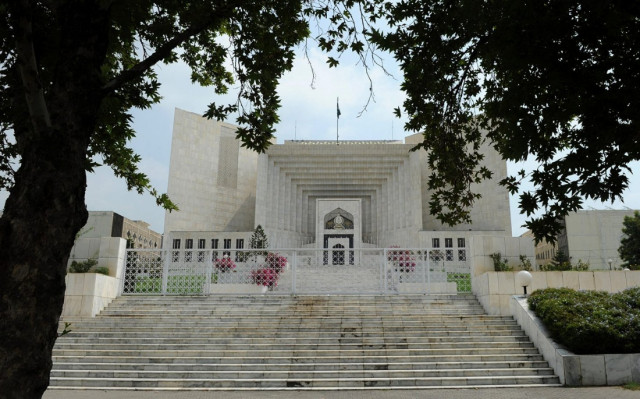Provinces ponder court challenge over NFC
: Centre’s lackadaisical attitude forces federating units to take tough line

PHOTO: AP
Representatives of the federal and four provincial governments held consultations on the status of the next NFC award in a meeting hosted by the Khyber-Pakhtunkhwa government in the federal capital on Tuesday.
K-P wants NFC award finalised without delay
“Due to unnecessary delay in finalising the next NFC award, the representatives of all the provincial governments discussed the possibility of moving the Supreme Court,” said Professor Ibrahim, K-P’s technical member, while speaking to the media after the meeting.
He said the 7th NFC award expired two years ago and the federal government seemed to be in no mood to finalise a new formula.
Professor Ibrahim claimed that all the provincial governments were unanimous on early finalisation of the new award.
“The last meeting of the 9th NFC was held in December 2016 and Finance Minister Ishaq Dar did not fulfil his promise to hold the next meeting in January 2017,” said Professor Ibrahim.
The 9th NFC is holding discussions to finalise a new five-year 8th NFC Award for distribution of financial resources. The federal divisible pool comprises various taxes and levies collected by the federal government.
Haider wants AJK included in NFC Award
According to the 7th NFC Award that expired in June 2015, 57.5% of the net federal divisible pool goes to the provinces while the remaining rests with the Centre.
“The federal government has been using delaying tactics and ignoring genuine demands of the provinces,” said K-P Finance Minister Muzaffar Said.
“Till the finalisation of the new award, the provinces’ shares should be increased by additional 1% every year to compel the centre to move forward on the issue,” he added.
The federal government and the four provinces made some attempts to renegotiate the terms of revenue sharing but the federating units are not willing to give back what they had obtained seven years ago.
The centre is not ready to move forward until the provinces indicate their willingness to shoulder the expenditure incurred on the war against terrorism and development expenses in Gilgit-Baltistan and the Federally Administrated Tribal Areas.
In the meeting held in December 2016, the centre proposed to reduce the size of the gross federal divisible pool by 7% to meet additional expenses on security and the federally administered special areas.
The federal government sought allocation of 3% of the gross federal divisible pool to meet additional expenditures on security and another 4% for Gilgit-Baltistan, Azad Jammu & Kashmir and Fata.
Professor Ibrahim said: “The provinces have sought some clarifications over the centre’s proposal to deduct 7% of the divisible pool but the federal government never gives these clarifications.”
On a question about asymmetry between the resources and the responsibilities that the provinces get, the professor said: “The federal government will have to first establish that provinces’ responsibilities are far less than the resources in the NFC meeting.”
The 7th NFC award has increased vertical asymmetry, with the provincial share in general government revenue projected at 50%, which is substantially higher than the expenditure share of only 35%, according to a report of the International Monetary Fund.
The K-P representative said the federal government should be blamed for increasing its responsibilities, as it recreated even those ministries that had been devolved to the provinces after the 18th Amendment.
Under NFC: AJK, G-B claim share in federal tax pool
However, the finance ministry believes the 18th Amendment and the 7th National Finance Commission award have sowed the seeds of perpetual fiscal imbalance in the country, putting the federal government at a disadvantageous position.
It said because of that Pakistan closed the last fiscal year at a record Rs1.863 trillion budget deficit that was equivalent to 5.8% of GDP. The budget deficit was 2% of the GDP or Rs654 billion higher than the target approved by parliament in June last year.
Instead of maintaining revenue surplus of about Rs339 billion, the four federating units have spent Rs163.2 billion more than their total income during FY2016-17.



















COMMENTS
Comments are moderated and generally will be posted if they are on-topic and not abusive.
For more information, please see our Comments FAQ